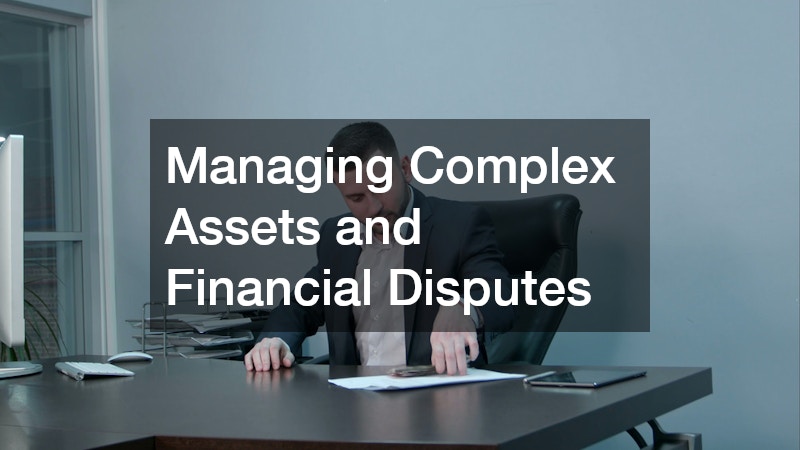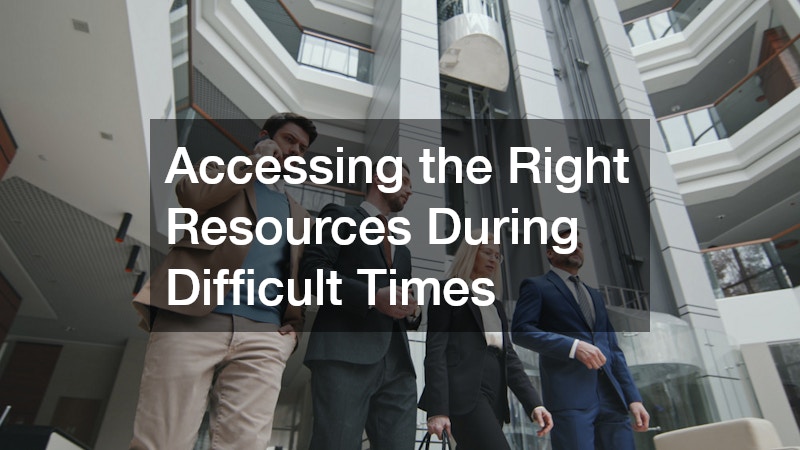When a marriage reaches a breaking point, understanding the reasons behind the decision to separate can provide clarity and direction. One of the most common legal grounds for divorce is known as “grounds of insupportability.” This term refers to a situation where the marriage has broken down due to differences that have become so severe and persistent that continuing the relationship is no longer possible. Unlike fault-based grounds, insupportability does not require proof of wrongdoing by either party—it simply acknowledges that the marriage cannot be sustained.
Recognizing when these grounds apply is often the first step toward seeking professional guidance. Many couples struggle with the emotional turmoil that accompanies the decision to end a marriage, and the legal process can seem overwhelming. Knowing when to reach out for support can help navigate these challenges more effectively. Early legal advice can clarify what insupportability means in the context of your situation and outline the possible paths ahead.
Legal professionals play an essential role in guiding individuals through this difficult time. They provide not only a framework for understanding the law but also practical assistance in managing the many details involved. From explaining your rights to helping prepare the necessary paperwork, their support can make the divorce process more manageable. Beyond the legalities, they offer a steady presence that helps protect your interests and those of any children involved.
Understanding the concept of insupportability and recognizing the right time to involve legal support sets the foundation for a more informed and empowered approach to divorce. It ensures that decisions are made with clear knowledge of the options and consequences. Ultimately, this approach promotes fairness and helps pave the way for healing and new beginnings after a marriage ends.
Recognizing the Right Time to Involve Legal Support

Determining the grounds of insupportability is often the first step in considering the need for a family lawyer. When a couple realizes that their differences are irreconcilable, consulting a family lawyer can offer valuable insights. These professionals provide the guidance needed to navigate the emotional and legal complexities that surface as a marriage dissolves. Family lawyers are instrumental in analyzing the nuances that make each case unique. For instance, what is considered insupportability for one party might not hold for another. Hence, professional advice is invaluable in establishing a strong case, focusing on the best outcomes for all involved parties. Understanding the legal definitions and realms of ‘grounds of insupportability’ ensures that clients can make informed decisions. This always starts with expert consultation, wherein a seasoned legal expert evaluates the potential paths forward. It’s crucial to engage with a professional early to prevent any missteps that could affect the divorce proceedings later.
How Experienced Counsel Can Influence Your Divorce Journey
Engaging a divorce attorney changes the trajectory of your divorce journey, particularly when considering the groundwork of insupportability. These attorneys specialize in orchestrating strategic moves that align with their client’s best interests. With intricate knowledge of family law, they navigate complex issues skillfully. The expertise of a divorce attorney is particularly beneficial when disputes amplify stress and emotional turmoil. Their objective handling of documentation and negotiation is vital during a divorce, ensuring that calculations of financial and asset divisions align with legal statutes. They help in presenting the insupportability grounds clearly to ensure fair judgments. A divorce attorney educates clients about their rights and responsibilities, fostering realistic expectations about the divorce process. They offer a clearer picture of how unresolved issues may unfold during litigation. This guidance helps clients understand the factors surrounding insupportability to make informed decisions.
Addressing Parenting Concerns and Custody Agreements
A child custody lawyer is paramount in cases where parenting concerns arise amidst the grounds of insupportability. They facilitate discussions that prioritize children’s welfare, ensuring custody agreements serve the best interests of minors. With empathy and legal knowledge, they mediate the emotional difficulties that accompany custody discussions. Legal experts in this field understand that navigating shared custody requires nuance and sensitivity. They draft agreements that anticipate potential conflicts, offering solutions that are sustainable and clear. By emphasizing collaborative resolutions, they help parents find common ground, focusing on the child’s stability and happiness. When disputes occur, child custody lawyers represent clients in court, advocating for fair outcomes under family law. Their intervention ensures that all actions reflect the complexity and sensitivity of parental rights and child welfare. By resolving issues of insupportability, they provide a stable framework for post-divorce parenting.
Managing Complex Assets and Financial Disputes

A high asset divorce lawyer is crucial in divorces involving significant financial portfolios. Navigating financial disputes requires expertise, especially when high-value assets are involved. Understanding the implications of the grounds of insupportability on asset division can prevent unequal or unfair compensation. The intricacy of asset division demands a keen understanding of ownership, tax implications, and potential future gains. A high-asset divorce lawyer provides strategic guidance tailored to protect client interests. They evaluate assets including property, businesses, and investments to ensure a comprehensive division strategy. These legal experts advocate for clients in negotiations and, when necessary, in the courtroom. Their role is to articulate and defend the financial entitlements of their clients, mindful of how insupportability metrics influence the division. This ensures a fair settlement that honors the contributions of both parties.
Reaching Resolutions Through Cooperative Methods
Divorce mediation offers an alternative route from contentious litigation by fostering cooperation. It emphasizes reaching voluntary solutions through mutual agreement rather than court-imposed decisions. In situations where the couple’s fundamental differences on grounds of insupportability persist, mediation provides a focused path toward resolution. Mediators work to diffuse tension, facilitating discussions that lead to workable agreements. This process respects both parties’ perspectives, encouraging dialogue that can achieve alignment on issues such as asset division and custody arrangements. Mediation is integral in reducing adversarial confrontations and promoting peace and collaboration. By prioritizing amicable negotiations, mediation can save time and resources while preserving relationships where possible. It’s essential for situations where long-term collaboration, such as shared parenting, is anticipated. While achieving legal finality, it maintains respect between parties, focusing on solutions rather than winners or losers.
What Legal Experts Provide During the Divorce Process
A divorce lawyer delivers numerous critical benefits that facilitate a smoother divorce process. Their expertise includes managing legal procedures and offering necessary guidance on all aspects of the divorce. Especially when coping with grounds of insupportability, their role is instrumental to achieving a fair separation. Legal experts meticulously prepare documentation, ensuring all legal requirements are met. Their insights guide clients through negotiations, providing clarity and strategic advice at crucial stages. This support mitigates stress, enabling parties to concentrate on personal and professional responsibilities without being overwhelmed. The value provided by a divorce lawyer extends beyond legal advice; they act as an advocate and protector of client interests. They offer career-spanning insight into how laws apply to the specific details of a client’s case, addressing both immediate and future concerns. Their commitment to client welfare is paramount in shaping successful resolutions.
Securing Your Financial Legacy After Separation

Wills and trusts play a significant role in protecting assets and securing a financial legacy post-separation. With grounds of insupportability potentially altering familial financial planning, updating these documents is often necessary. A legal practitioner specializing in this area helps navigate the intricacies of family financial restructuring. Ensuring that your intentions are documented and legally sound, these professionals adapt wills and trusts to reflect new familial structures. They analyze how assets are allocated, safeguarding heirs and beneficiaries. This restructuring aids in mitigating disputes and preserving financial intentions amidst shifting family dynamics. By proactively updating estate plans, individuals can maintain control over their legacy decisions, preventing future conflict. It’s about adapting to new circumstances in a way that’s thoughtful and strategic. Legal experts provide peace of mind that ensures assets are protected and directed as intended.
Handling Inheritance and Property Disputes in Divorce
The intervention of an estate litigation attorney becomes crucial when handling inheritance disputes during a divorce. Amidst the grounds of insupportability, tensions can flare over family assets and inheritances, potentially impacting settlements. Expert legal assistance ensures that all claims are properly addressed and negotiated. These attorneys specialize in dispute resolution, offering a legal grounding that clarifies ownership and valid entitlements. By evaluating claims, they level the playing field, advocating effectively for their client’s rightful share. Their role ensures that inherited wealth and property disputes do not undermine fair settlements. Conflicts over property and inheritance are sensitive, demanding a nuanced understanding of both legal rights and family history. Attorneys work diligently to resolve these issues in ways that are respectful and legally sound, offering mediation and, where necessary, robust representation in court to ensure justice.
Finding the Right Advocate for Your Divorce Case
Choosing the right lawyers is crucial when facing divorce, especially with the complexities brought on by grounds of insupportability. A well-chosen advocate can transform the divorce process, offering personalized guidance that addresses specific concerns and objectives. This selection should consider expertise, experience, and the ability to empathize and communicate effectively. During consultations, prospective clients should evaluate potential lawyers’ approachability, listening skills, and strategic mindset. Effective lawyers demystify complex legal language, ensuring their clients understand proceedings thoroughly. This open communication builds trust, a vital component in achieving a favorable divorce settlement. Experienced lawyers operate with a commitment to client welfare, focusing on both legal success and emotional ease. They offer a reassuring presence through tumultuous periods, protecting client interests with empathy and tenacity. Their expertise mitigates stress, represents your case effectively, and contributes positively to your post-divorce future.
Accessing the Right Resources During Difficult Times

The value of legal assistance cannot be overstated during a divorce, particularly when establishing grounds of insupportability. Beyond the need for qualified counsel, accessing supplementary resources such as financial advisors and therapists can provide comprehensive support. Emphasizing holistic care ensures that both practical and emotional needs are adequately addressed. Collaborating with a network of specialist resources offers rounded support to individuals navigating the intricacies of divorce. Financial advisors assist in planning for future stability, while therapists provide a necessary outlet for emotional processing and recovery. These resources, in coordination with legal counsel, create a robust support system. By ensuring access to a broad spectrum of support services, individuals can move beyond the immediate pain of divorce toward long-term health and happiness. Legal assistance serves as a cornerstone of this journey, orchestrating efforts and collaborations that aim for holistic and constructive outcomes. This strategic integration of resources empowers individuals amidst the challenges of rebuilding.
As we navigate the multifaceted process of divorce, understanding the right time to involve legal support is paramount. The legal landscape is complex, particularly concerning irreconcilable differences, which play a central role in divorce proceedings. Engaging a family lawyer early can offer guidance and clarity, setting the tone for a fair and respectful resolution.
Experienced counsel, such as divorce attorneys and child custody lawyers, provide specialized expertise to navigate critical aspects of divorce, from custody agreements to complex financial disputes. Their role in sparking cooperation through mediation and protecting financial legacies by updating wills and trusts cannot be underestimated. Meanwhile, high-asset divorce lawyers and estate litigation attorneys bring sharp negotiation skills necessary for addressing financial entanglements.
Ultimately, finding the right advocate who resonates personally and professionally enhances your path toward achieving favorable outcomes. Integrated support, drawing from a network of skilled lawyers, financial experts, and holistic resources, ensures you are well-equipped to handle both immediate and future challenges with confidence. This team approach provides comprehensive assistance, addressing legal complexities, financial planning, and emotional well-being, which are all crucial during such a significant life transition.
This framework is especially critical when irreconcilable differences underlie the decision to divorce. With professional guidance, there is assurance that each step taken protects interests while promoting healing and growth beyond the adversities faced. For those walking this arduous journey, the message remains clear: you are not alone, and there are experts ready to fight for the resolution you deserve. By building a solid support system, individuals can approach their divorce with clarity and strength, laying the foundation for a more hopeful future.